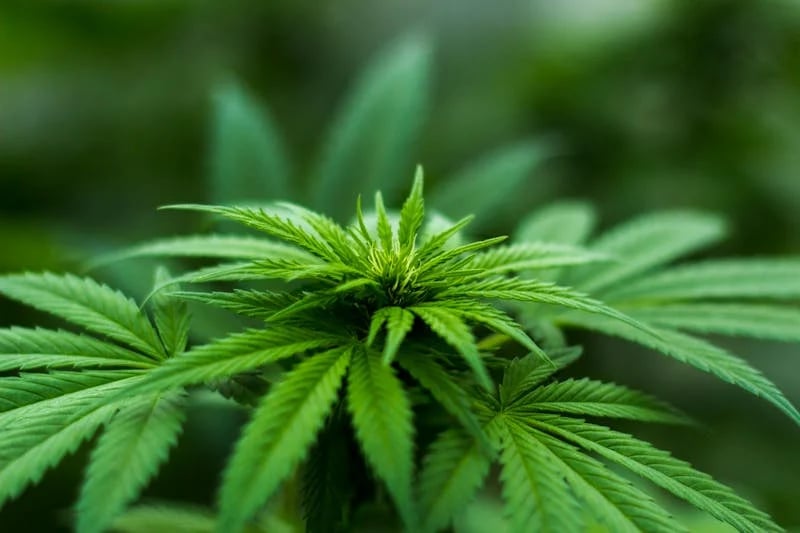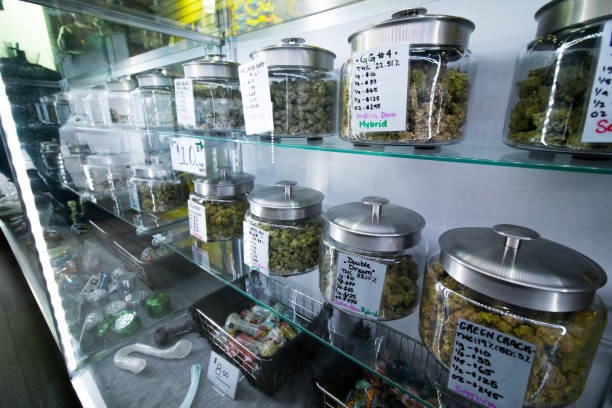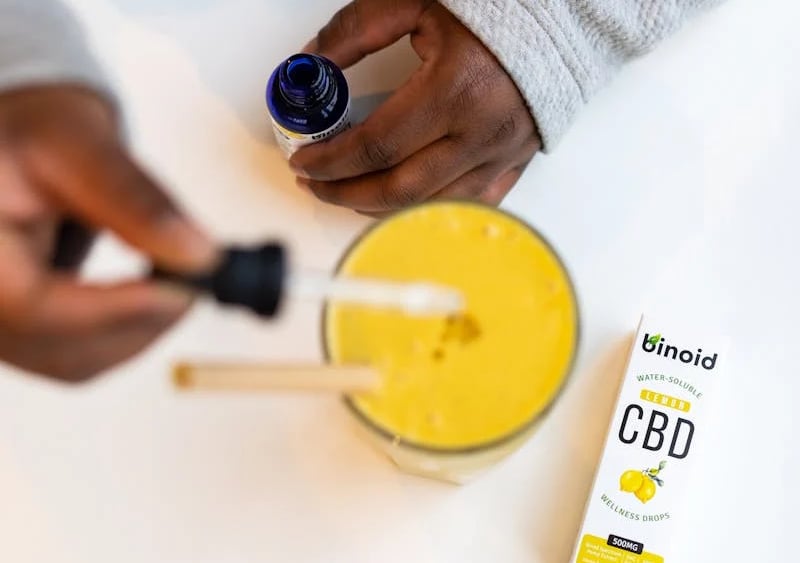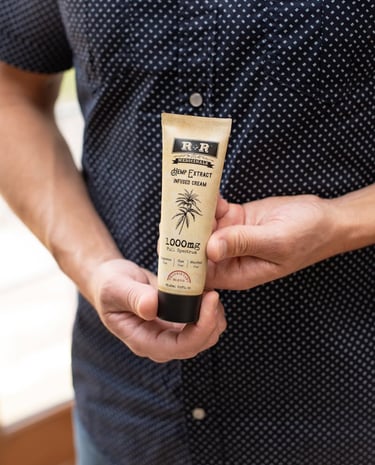The Healing Powers of Cannabis: Nature’s Relief for Modern Ailments
Janelle Salo RN
10/7/20247 min read


Benefits of cannabis for health
Cannabis has been used as a medicinal remedy for thousands of years across various cultures, dating back to ancient China, Egypt, and India. (1) Historically, it was valued for its ability to relieve pain, reduce inflammation, treat ailments like digestive issues and insomnia, and an appetite stimulant for those undergoing chemotherapy and other diagnoses that may cause anorexia. Today, as we rediscover its therapeutic properties, cannabis is being embraced as a natural alternative to modern medical treatments.
Understanding the therapeutic properties of cannabis is necessary as it offers a natural approach to managing a wide range of physical and mental health conditions. (2) By exploring how cannabinoids like CBD and THC interact with the body, individuals can make informed decisions about incorporating cannabis into their wellness routines. As medical research continues to grow, cannabis holds promising potential for improving overall health and well-being.
How Cannabis Interacts with the Body's Endocannabinoid System
The endocannabinoid system (ECS) is a complex cell-signaling network that helps regulate key functions like mood, pain, appetite, and immune response. (3) Cannabis compounds, mainly delta-9-tetrahydrocannabinol (THC) and cannabidiol (CBD) interact with ECS receptors to support balance and homeostasis in the body. THC primarily binds to CB1 receptors, creating psychoactive effects, while CBD interacts more subtly, promoting healing without the high.
Cannabis promotes homeostasis by interacting with the body’s endocannabinoid system, which helps regulate required functions like sleep, mood, pain, and immune response (4). By restoring balance in these areas, cannabis can alleviate chronic conditions and enhance overall well-being. This balancing effect supports both physical and mental health, making cannabis a valuable tool in holistic wellness.
Benefits of CBD without getting high
CBD is a non-psychoactive compound found in cannabis that has gained attention for its therapeutic benefits, particularly in pain relief, anxiety reduction, and inflammation management. (5) Unlike THC, CBD does not produce a high, making it an appealing option for those seeking relief without the psychoactive effects. Research has shown that CBD can effectively reduce chronic pain, alleviate anxiety symptoms, and lower inflammation, making it a versatile addition to holistic health practices.
CBD oil, tinctures, and other products offer a convenient and versatile way to incorporate the therapeutic benefits of cannabidiol into daily routines. (6) These products can be easily administered, allowing for precise dosing to effectively manage issues like stress, sleep disturbances, and chronic pain. With a variety of forms available—such as capsules, topicals, and edibles—users can choose the method that best fits their lifestyle and preferences, promoting overall wellness without the high associated with THC.
Medical Conditions That Cannabis Can Help Treat
Chronic pain relief: arthritis, fibromyalgia, and nerve pain.
Chronic pain conditions such as arthritis, fibromyalgia, and nerve pain can significantly impact daily life, leading many to seek effective relief. (7) Research has shown that cannabis, mainly through compounds like CBD and THC, can provide substantial pain relief by reducing inflammation and balance pain signals in the nervous system. Many individuals report improved mobility and quality of life when incorporating cannabis into their pain management strategies, making it a valuable alternative to traditional pain medications.
Mental health benefits: anxiety, depression, and PTSD.
Cannabis has emerged as a potential ally in managing mental health conditions such as anxiety, depression, and Post Traumatic Stress Disorder or PTSD. (8) Compounds like CBD are known for their calming effects, helping to alleviate anxiety and promote a sense of well-being without the intoxicating effects of THC. Many users have reported that cannabis can provide emotional relief and enhance mood stability, making it a promising option for those seeking alternative therapies for their mental health challenges.


Insomnia and sleep disorders.
Insomnia and other sleep disorders can severely impact overall health and well-being, leading many to explore alternative solutions for better sleep. (9) Cannabis, particularly strains high in CBD and specific terpenes has shown promise in promoting relaxation and reducing sleep disturbances. Many users find that cannabis helps them fall asleep faster and stay asleep longer, leading to improved sleep quality and daytime functioning.
Seizures and epilepsy, particularly with CBD treatment.
CBD treatment has gained significant attention for its efficacy in managing seizures, particularly in patients with epilepsy. Clinical studies, including those focused on Dravet syndrome and Lennox-Gastaut syndrome (10) have demonstrated that CBD can substantially reduce the frequency and severity of seizures. As a result, CBD has become an essential option for individuals who may not respond to traditional antiepileptic medications, offering hope for improved quality of life.


Cannabis for Pain Management and Chronic Illness
Cannabis offers a natural alternative to opioids and over-the-counter pain medications by providing effective pain relief without the risk of addiction and harmful side effects commonly associated with these drugs. Unlike opioids, which can lead to dependency and overdose, cannabis compounds like CBD and THC interact with the body’s endocannabinoid system to alleviate pain and inflammation safely. (11) This makes cannabis a promising option for chronic pain management, allowing individuals to reduce their reliance on conventional medications while still achieving relief.
The Anti-Inflammatory and Antioxidant Properties of Cannabis
Cannabis is known for its anti-inflammatory properties, making it a practical option for reducing inflammation associated with various conditions, such as arthritis and autoimmune disorders. (12) Compounds like CBD interact with the body’s endocannabinoid system to inhibit inflammatory responses and promote healing at the cellular level. By alleviating inflammation, cannabis can help accelerate recovery times and improve overall mobility and comfort for individuals dealing with chronic pain or injuries.
Cannabis has shown potential benefits for individuals with autoimmune disorders and inflammation-based conditions such as Crohn’s disease and rheumatoid arthritis by helping to regulate the immune response and reduce chronic inflammation. (13) The anti-inflammatory properties of cannabinoids like CBD can alleviate symptoms such as pain, swelling, and discomfort, improving overall quality of life for patients. Additionally, by promoting a more balanced immune system, cannabis may help ease flare-ups and enhance the effectiveness of traditional treatments.


Cannabis for anxiety and stress relief
CBD and low-THC strains of cannabis are increasingly popular for those seeking mental calmness without the excessive intoxication typically associated with higher THC levels. (14) These strains provide the therapeutic benefits of cannabinoids while minimizing psychoactive effects, allowing users to maintain clarity and focus throughout their day. By promoting relaxation and reducing anxiety, CBD and low-THC strains offer a balanced approach for individuals looking to enhance their mental well-being.
Cannabis, particularly strains high in CBD, can enhance stress relief, making it easier to unwind and promote a sense of calm. (15) This natural alleviation of tension can create a more conducive environment for meditation, allowing individuals to deepen their practice and achieve greater mindfulness. Additionally, many users report improved mental clarity and focus when using cannabis mindfully, enabling them to navigate daily challenges with a more balanced perspective.


Holistic Uses of
Cannabis: Topical Applications and Edibles
Topical products like creams and balms infused with CBD and other cannabinoids offer targeted relief for localized pain and inflammation without the psychoactive effects of cannabis. (16) These products can be applied directly to the skin, allowing the active compounds to penetrate deeply and provide soothing relief for conditions such as arthritis, muscle soreness, and skin irritations. With their ease of use and fast-acting properties, topical cannabis products are becoming a favored choice for those seeking natural pain management solutions.
Cannabis edibles, such as gummies, chocolates, and baked goods, provide a longer-lasting effect compared to other consumption methods, making them an appealing choice for those looking for sustained relief. (17) Unlike smoking or vaping, edibles allow users to enjoy the benefits of cannabis without exposing their lungs to harmful substances, making them a healthier alternative. With a variety of flavors and dosages available, edibles offer a discreet and enjoyable way to experience the therapeutic effects of cannabis throughout the day.


Legal Considerations and Finding Quality Cannabis Products
Understanding cannabis legality varies significantly by region or state, as laws can differ widely in terms of medical and recreational use, possession limits, and cultivation regulations. (18) In some areas, cannabis is entirely legal for both medical and recreational purposes, while others may only permit medical use with strict guidelines. Staying informed about local cannabis laws is vital for users to ensure compliance and safely navigate the evolving landscape of cannabis legislation.
When searching for organic, high-quality cannabis products for medical use, it’s important to choose reputable dispensaries that prioritize transparency and lab testing. (19) Look for products with clear labeling, including information on cannabinoid content, sourcing, and production practices. Additionally, seeking out third-party lab results can help ensure the products are free from harmful pesticides and contaminants, providing peace of mind regarding their safety and efficacy.








The Future of Cannabis in Holistic Health
Cannabis is increasingly shaping the future of holistic and integrative medicine by offering a natural alternative for managing a wide range of health issues, from chronic pain to mental health disorders. (20) As more research highlights its therapeutic benefits, healthcare practitioners are beginning to incorporate cannabis into patient care plans, promoting a more personalized approach to wellness. This shift not only enhances treatment options but also encourages a broader acceptance of natural remedies in modern healthcare, paving the way for a more comprehensive understanding of holistic healing.
Before incorporating cannabis into a medical treatment plan, it's essential to consult with a healthcare professional who is knowledgeable about its benefits and potential side effects. A qualified provider can help determine the most appropriate strains, dosages, and consumption methods based on individual health needs and conditions. This collaborative approach ensures that patients make informed decisions and safely integrate cannabis into their overall wellness strategies.










© 2025 Salo Content Writing LLC, all rights reserved
Join the Movement for a Healthier Planet! 🌿
Subscribe now and get your FREE Sustainable Living Checklist! Plus, enjoy weekly articles and delicious plant-based recipes straight to your inbox. Let’s make sustainable living simple and inspiring, one email at a time! 💚✨
